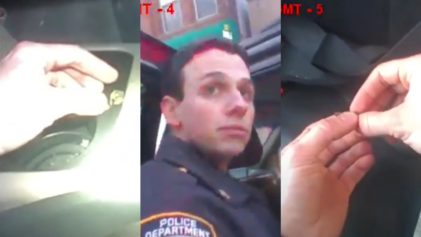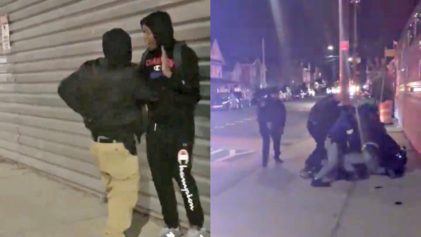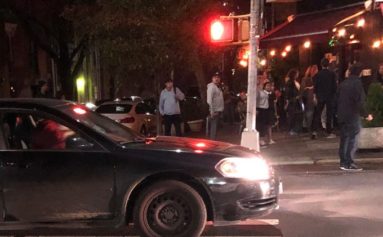After painful testimony from young black males who had been affected by New York’s stop-and-frisk policy, the federal court in Manhattan this week heard from police officers who used secret recordings to show how they are pressured by supervisors to stop black and Latino males to meet quotas — or risk punishment and retaliation.
In the class-action lawsuit in federal court, plaintiffs are trying to convince U.S. District Judge Shira A. Scheindlin to rule the city policy unconstitutional, claiming the NYPD has used it to stop millions of black and Latino men over the past decade, without a legally defensible reason.
Two officers from the Bronx, Adhyl Polanco, an eight-year veteran of the NYPD, and Officer Pedro Serrano, testified that they were pressured to make stops and to focus on black and Latino males. Polanco said he was told at a daily roll call that he had to log at least five stop-and-frisks, make one arrest and write 20 tickets each month, according to CNN affiliate NY1.
“They said, ‘You do it or you are going to become a Pizza Hut deliveryman,'” Polanco said. “I started recording it because I could not believe what I was hearing.”
According to the New York Civil Liberties Union, the NYPD logged its 5 millionth stop-and-frisk last week during the administration of Mayor Michael Bloomberg, who has been a staunch supporter of the policy, claiming it gets criminals and guns off the streets.
Serrano played a recording made in February 2013, during which Deputy Inspector Christopher McCormack can be heard saying that officers need to stop “the right people at the right time in the right location.”
When asked what he believed McCormack meant, Serrano told the court: “He meant blacks and Hispanics.”
Later in the tape McCormack says: “I have no problem telling you this … male blacks. And I told you at roll call, and I have no problem [to] tell you this, male blacks 14 to 21.”
According to Serrano, his attempts to raise concerns about stop-and-frisk and the existence of quotas were met with retaliation, including fellow officers vandalizing his locker with stickers of rats.
“I would have a day off and they’d give me forced (overtime),” he told the court. “I would get yelled at, get low evaluations, they would deny days off.”
Serrano choked up on the witness stand Thursday, describing his reason for joining the suit.
“As a Hispanic walking in the Bronx, I’ve been stopped many times, and it’s not a good feeling,” he said. “As an officer, I said I would respect everyone to the best of my abilities. I just want to do the right thing.”
Testifying for the police department, Deputy Chief Michael Marino said yesterday that when he was overseeing the 75th precinct in Brooklyn, he had to set a goal of 10 summonses and one arrest per month because the officers were performing poorly.
“Department managers can and must set performance goals,” Marino said.
State law says performance goals are legal, but quotas are not.
“Even if you discredit Officer Polanco, the recordings say what they say, and you hear actual supervisors on these recordings saying this is mandatory, it is not negotiable, you need to do this, if you don’t do it, find yourself another job,” said Darius Charney, a lawyer with the Center for Constitutional Rights, which brought the class-action suit.


